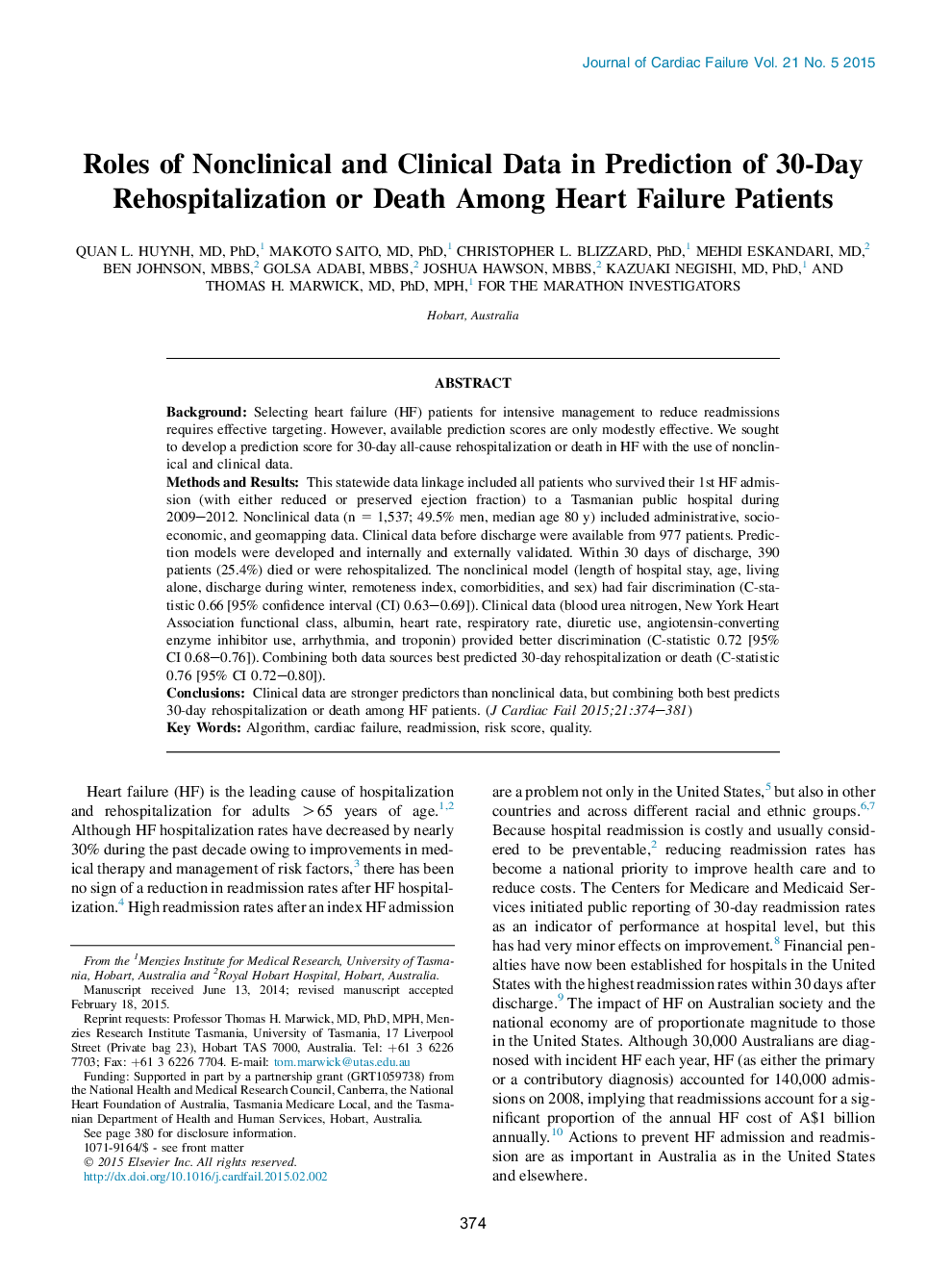| Article ID | Journal | Published Year | Pages | File Type |
|---|---|---|---|---|
| 2958990 | Journal of Cardiac Failure | 2015 | 8 Pages |
•Both clinical and nonclinical data may predict HF readmissions or death.•Poor clinical features and socioeconomic disadvantages predict higher risk.•Clinical data are stronger predictors than nonclinical data.•Combining both data sources substantially increases predictive power.
BackgroundSelecting heart failure (HF) patients for intensive management to reduce readmissions requires effective targeting. However, available prediction scores are only modestly effective. We sought to develop a prediction score for 30-day all-cause rehospitalization or death in HF with the use of nonclinical and clinical data.Methods and ResultsThis statewide data linkage included all patients who survived their 1st HF admission (with either reduced or preserved ejection fraction) to a Tasmanian public hospital during 2009–2012. Nonclinical data (n = 1,537; 49.5% men, median age 80 y) included administrative, socioeconomic, and geomapping data. Clinical data before discharge were available from 977 patients. Prediction models were developed and internally and externally validated. Within 30 days of discharge, 390 patients (25.4%) died or were rehospitalized. The nonclinical model (length of hospital stay, age, living alone, discharge during winter, remoteness index, comorbidities, and sex) had fair discrimination (C-statistic 0.66 [95% confidence interval (CI) 0.63–0.69]). Clinical data (blood urea nitrogen, New York Heart Association functional class, albumin, heart rate, respiratory rate, diuretic use, angiotensin-converting enzyme inhibitor use, arrhythmia, and troponin) provided better discrimination (C-statistic 0.72 [95% CI 0.68–0.76]). Combining both data sources best predicted 30-day rehospitalization or death (C-statistic 0.76 [95% CI 0.72–0.80]).ConclusionsClinical data are stronger predictors than nonclinical data, but combining both best predicts 30-day rehospitalization or death among HF patients.
